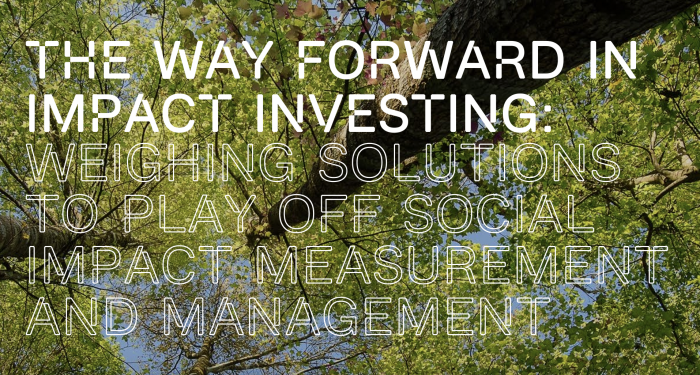
UCL School of Management Professor Paolo Taticchi and Honorary Research Fellow Chiara Andreoli have co-authored a white paper that highlights the challenges facing the field of impact investing. Entitled ‘The Way Forward in Impact Investing: Weighing Solutions To Play Off Social Impact Measurement And Management’, the paper also seeks to identify and evaluate possible solutions that allow the field to move forward.
In 2007, the term ‘impact investing’ was coined by a small group of ‘dreamers’ at the Bellagio Centre in Italy. Reshaping the notion of traditional investing, impact investing aims to look beyond the standard risk-return relationship by generating positive social and environment impact alongside financial return. The need for impact investing, according to the authors, has never been greater, as the increasingly severe societal challenges of today means that shareholders’ capitalism has become obsolete.
However, the rapid growth of impact investing over the last fifteen years has meant that a number of challenges now face the industry. There is, for example, significant confusion surrounding the factors that need to be considered when measuring and managing the social impact of impact investments, as well as substantial difficulties in generating and collecting high-quality social impact data that is useful for decision-making.
Identifying solutions to the above problems, the authors highlight the need for definitional clarity, which they argue is the first step of the social impact measurement and management process. Once stakeholders are on the same page, there will be less room for error further down the line. In terms of data collection, stakeholders should create efficient feedback loops at each stage of investment projects and consult independent bodies for support and guidance. Discussing the need for such solutions, the authors note that, ‘without any doubt, there has been a clear progression in efforts to address the key challenges in measuring and managing social impact. In addition, although progress has been made, some advancements are still needed.’